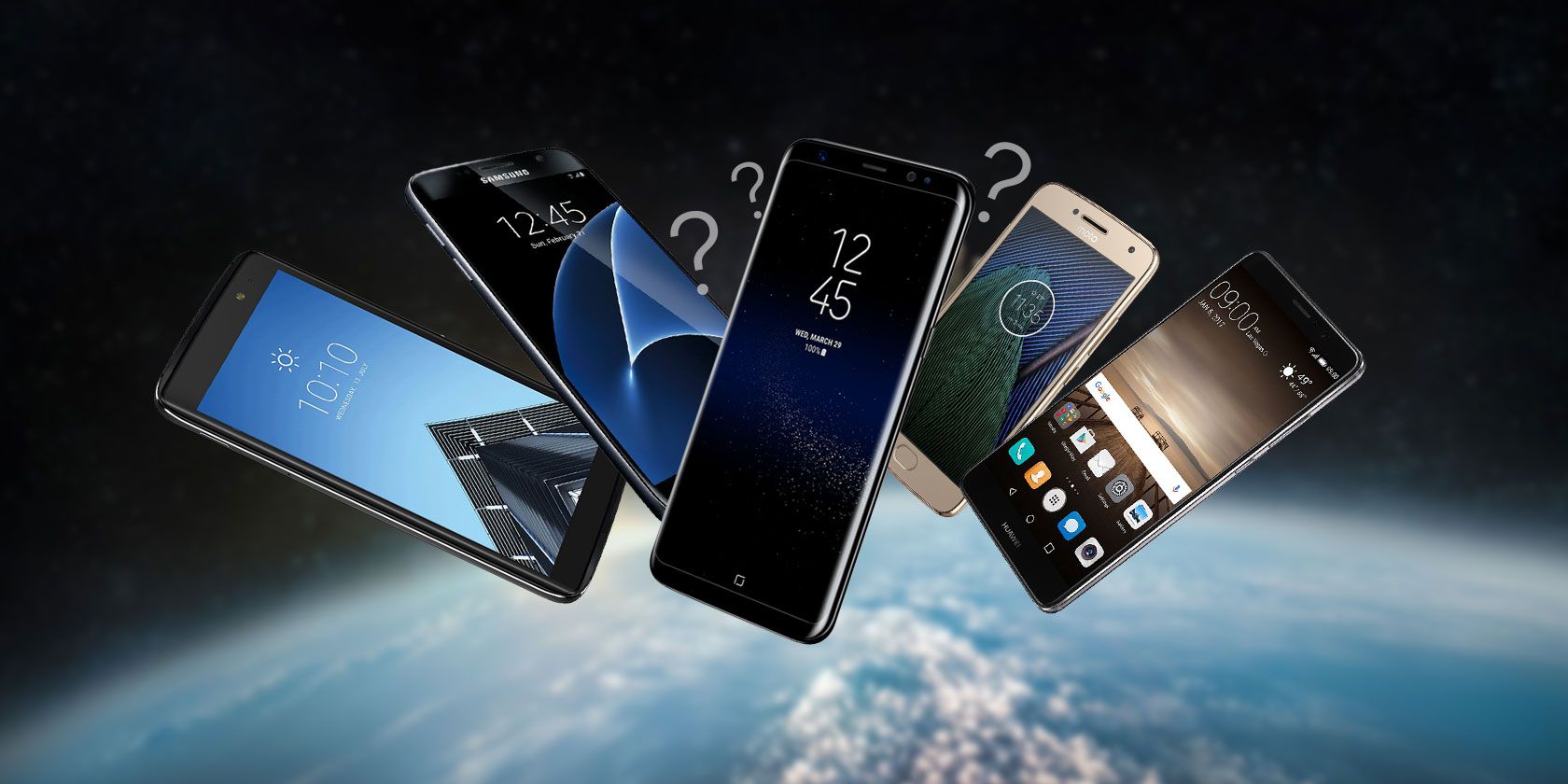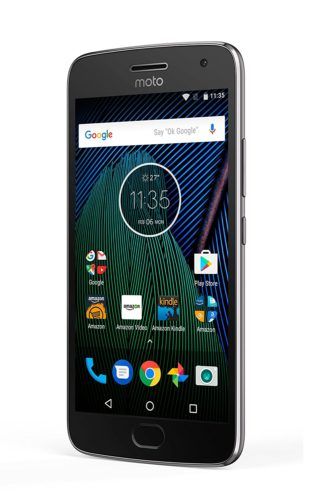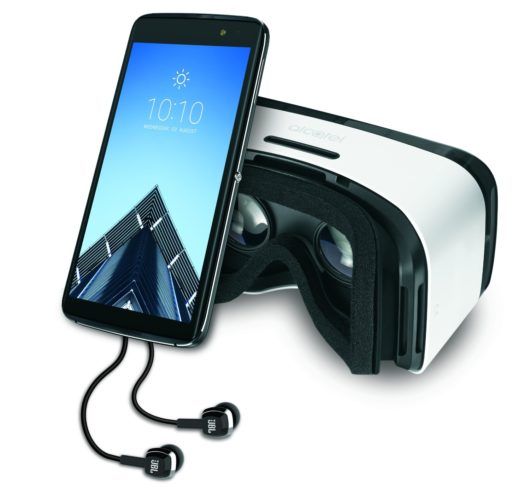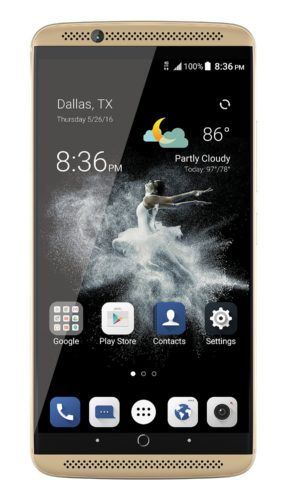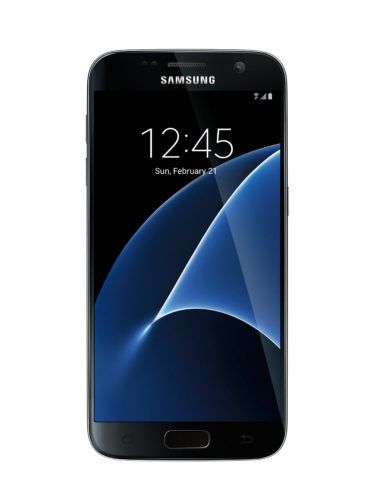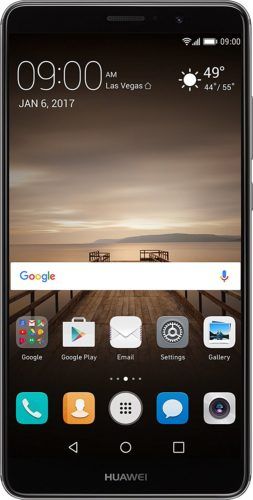Samsung's flagship phones for 2017, the Galaxy S8 and S8 Plus, are finally here. The S8 and S8 Plus deliver several improvements over past Galaxy iterations. With Android officially holding the title as the most popular operating system, the Samsung Galaxy S8 and S8 Plus are a potential upgrade or foray into Android handsets for many.
Yet they're certainly not the only smartphones available. Sure, the S8 and S8 Plus are Samsung's latest offerings, but there are tons of choices. So, should you buy a Samsung Galaxy S8?
Maybe not. Check out these five worthy alternatives.
What's New in the Galaxy S8?
The Galaxy S6 and S6 Edge were the most radical refreshes of Samsung's flagship phone. Before the S6, the Galaxy flagship line offered the handset with just one version. The S6 saw two versions. Then in 2016 with the advent of the Galaxy S7 and S7 Edge, Samsung further chiseled the design as well as software. Unfortunately, 2016 also featured the famous (or infamous) Galaxy Note 7 which was one of 2016's hottest phones, pun fully intended.
Whereas both the S6/S6 Edge and S7/S7 Edge featured two designs, one with a curved design, one sans-curved design, the Samsung Galaxy S8 forgoes that trend. Instead, both the Galaxy S8 and S8 Plus boast curved edges. However, its curves are less accentuated than those of the S7 Edge. Moreover, the back of the device features curvature as well. Unlike Apple's latest iPhone, the S8 and S8 Plus retain a 3.5mm headphone jack.
Bixby and DeX
Arguably the Samsung Galaxy S8's most radical improvements are Bixby and DeX. Voice assistants and AI are increasingly used in phones. There's Google Assistant on Android, Amazon Alexa, Siri on Apple devices, and Cortana for Windows. Enter Bixby, Samsung's AI assistant (which won't be available at launch). Neat features include image recognition.
Then there's DeX. Although Samsung once included a video out feature on its handsets, the Samsung Galaxy S5 was the last in the Galaxy S phone lineup to offer MHL video out via microUSB. If you wanted to view video from your phone on your TV, you were relegated to casting or eschewing your phone and simply using an Android set-top-box. DeX, however, turns your phone into a desktop.
Sure, your Galaxy S8 might not win any benchmarks and no, it can't run Crysis. But it's a radical feature that positions the S8 and S8 Plus as more than phones -- they're complete desktops.
Galaxy S8 Budget Alternatives
Motorola Moto G5 and G5 Plus
The Moto G5 and G5 Plus are superb devices. Motorola consistently puts out superb budget hardware that rivals premium handsets. The fifth generation in the Moto G lineup, the Moto G5 and G5 Plus offer two sizes like the S8 and S8 Plus. Both Moto G5 variants deliver an excellent camera and solid performance. Onboard, you'll find a 13-megapixel camera, similar to that of the S7. Additionally, its 2GHz processor admirably handles Android 7.0 Nougat.
However, you won't find high-end inclusions. There's no NFC, and Engadget notes that the display is lackluster. Nevertheless, the Moto G5 does accept a microSD card. Coupled with its superb camera and sturdy build, the Moto G5 and G5 Plus remain arguably the best budget handsets available. Engadget even dubbed the G5 and G5 Plus "the best budget phones" on the market.
Why it's a great Samsung Galaxy S8 alternative: The camera rivals that of the Samsung Galaxy S7 and the price to performance ration is unchallenged.
Galaxy S8 Mid-range Alternatives
Alcatel Idol 4S
The Alcatel Idol 4S is a well-built, feature-rich handset. The exterior oozes a high-end vibe. There's lots of metal and glass on the Alcatel Idol 4S. You'll find a large screen, rich audio profile, and fantastic cameras. The rear-facing camera boasts 16 megapixels, while the front-facing shooter clocks in at 8-megapixels. As CNET states in its review, what comes in the box sets the Alcatel Idol 4S apart from other midrange phones. There's a VR headset and screen protector bundled making the Idol 4S a phenomenal value.
Innovative features include the Boom Key. This convenience key aims to open apps and act as a shortcut. While the general concept sounds great, CNET found it lacking. But premium build quality, loads of included accessories, and a beefy camera that even shoots 30 frames per second (FPS) 4K video propel the Alcatel Idol 4S into a higher category despite its mid-range price tag.
Why it's a great Samsung Galaxy S8 alternative: Large screen, 16-megapixel camera, capable of capturing 4K 20 FPS video.
ZTE Axon 7
The ZTE Axon is a beefy, high-performing mid-range Android. ZTE outfitted its Axon 7 with an incredible processor that holds its own with those found in high-end models. For storage, you'll find 64GB built in which is paired with 4GB of RAM. Additionally, there's a microSD card slot for expandable storage. A 5.5-inch screen sports a 2,560x1,440-pixel resolution. Additionally, the screen is vivid. In out review, Riley J. Dennis stated, "To be completely honest, this is an amazing phone."
CNET appreciates the ZTE Axon 7 for its quality build, large, vibrant screen, and amazing computing power. However, CNET notes that the Axon 7 is pretty hefty and moreover doesn't include a removable battery. If you don't mind the added weight and inconvenience of not being able to swap out batteries, the Axon 7 is an amazing device at a fantastic price.
Why it's a great Samsung Galaxy S8 alternative: Beefy processing power, large, bright screen.
Galaxy S8 Top-tier Alternatives
Samsung Galaxy S7 and S7 Edge
If you want a Samsung Galaxy S8 or S8 Plus alternative, try the Galaxy S7 or S7 Edge. We liked both the S7 and S7 Edge, though recommend the S7 over its larger kin. It's a pretty similar phone in aesthetics and software. Although the S7 may lack premium features like Bixby or DeX, it's an excellent handset. The S8 adds height while remaining the same width. There's a bit more screen with the S8, but the S7 is plenty large. The 8 also sports nearly identical specs in certain areas. Namely, both devices rock 4GB of RAM and a 3000mAh battery as well as wireless charging, waterproofing, and a microSD slot. While Samsung nixed the microSD slot on the S6, it brought it back for the S7.
Where the S8 differs from the S7 is a faster processor and 64GB of storage. The S7 even rolled out an Android Nougat update to keep up to date. Yet the S8 ads Bixby, a voice assistant as well as DeX which yields the functionality to transform your phone into a desktop. But DeX is sold separately, and moreover, this isn't a feature necessary for every user. The S7 isn't outdated by any means, and now that the S8 is available Samsung's Galaxy S7 and S7 Edge are bound to be on sale.
Why it's a great Samsung Galaxy S8 alternative: Nearly identical specs, sans-Bixby and DeX.
Huawei Mate 9
The Huawei Mate 9 has loads in its favor. There's superb build quality, a massive screen that borders on a phablet, stellar battery life, and a strong processor. The Mate 9 further uses Alexa, Amazon's voice assistant. Further innovation comes in the form of Daydream VR-ready specs. Tech Radar lauded the Huawei Mate 9's solid construction complete with a fingerprint scanner, as well as VR and artificial intelligence (AI) features through Alexa.
Yet while Alexa integration is neat, it's decidedly not, well, integrated. Unlike Google Assistant, Alexa must be launched via the app. However, once Alexa is functioning it's a breeze to use. Complete with spectacular construction, a large screen, and Alexa, the Huawei Mate 9 is a potential S8 killer.
Why it's a great Samsung Galaxy S8 alternative: Amazon Alexa integration rivals the Samsung Galaxy S8's Bixby, and the two phones feature similar computing power and size.
Should You Buy a Samsung Galaxy S8?
Whether you should buy a Samsung Galaxy S8 depends on your needs. It's no doubt a phenomenal phone, but its improvements please power users.
The average consumer likely won't need Bixby or DeX. Google Assistant, Alexa, Cortana, or Siri are all solid voice assistants. In a hands-on review, CNET even claimed that Samsung's Bixby "needs to grow up." DeX, however, remains an awesome feature that posits the Galaxy S8 as a portable computer. It won't replace your gaming rig, but for travel or light computing (think writing, web browsing, watching video), it's a neat touch. But, DeX is not a default inclusion.
If you're not a power user, consider one of the above alternatives. Or try one of the best Android smartphones from 2016. If you're a student, these budget handsets will fit your needs.
Are you upgrading to the Galaxy S8 or S8 Plus? Which alternatives do you recommend?

